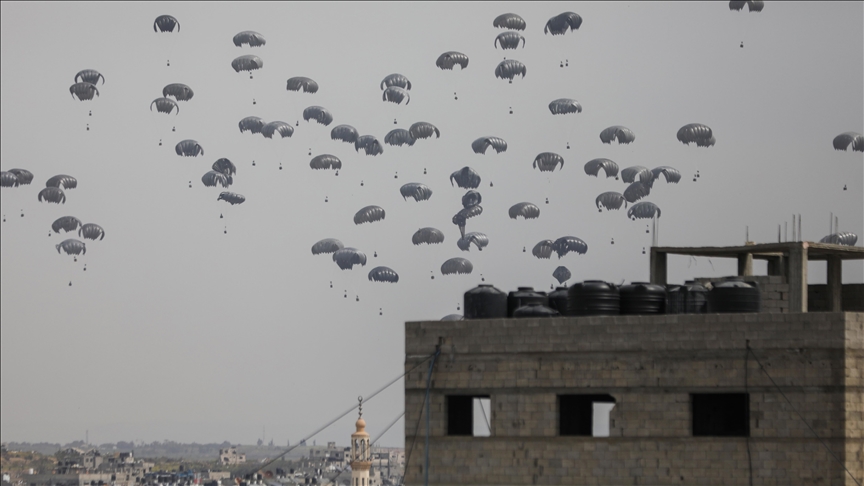U.S. Soldier Killed, Four Wounded Near Tikrit
Separately, Centcom said one soldier was killed and two injured in a vehicle accident about 35 kilometers (20 miles) north of Baghdad on Friday, June 6.
"They were providing security escort to Coalition Provisional Authority personnel at the time of the accident," it said.
"The wounded soldiers were evacuated to the 28th Combat-Support Hospital for treatment," the statement added.
A total of 28 U.S. service personnel have died in fighting or accidents in Iraq since May 1, when U.S. President George W. Bush declared the war was effectively over, according to a toll by France Agence-Presse (AFP).
On Thursday, June 5, a U.S. soldier was killed and five others wounded in the Iraqi city of Falluja in a rocket-propelled grenade attack.
It was the second deadly attack on U.S. soldiers in Falluja in just nine days. On May 27, two soldiers were killed and nine wounded in another assault.
The U.S. occupation forces became cautious about escalating Iraqi resistance activity, as clearly demonstrated in the increase of patrols in Baghdad and other precautionary measures all over the country.
Iraqi Killed
An Iraqi was shot and killed when he allegedly tried to escape from a Danish road block in the north of Basra province, the Danish defense command announced Saturday.
Danish soldiers patrolling an area near the town of Al Qurnah on Friday intercepted two cars with three “armed” Iraqis.
Two of the men surrendered quickly, and the third tried to flee with the firearms, the defense headquarters said.
After failing to heed several warning shots, the man was shot and later died at a nearby medical facility, it claimed.
The two other Iraqis are currently in the custody of Danish forces.
Denmark currently has 367 soldiers deployed under British command in the so-called Iraq stabilization force, according to Danish defense command.
Health Minister Detained
U.S. occupation forces in Iraq have been detaining the country’s health minister since early May, his son told AFP Saturday.
Omid Mubarak, who served as Iraq’s health minister since the Gulf War in 1991, was called in for questioning by U.S. forces on May 2 and has been in custody ever since, confirmed his son Nardin Mubarak from Paris, where he is attending dental school.
"The family, including me, has heard from him," the son said, adding that officials from the International Committee for the Red Cross (ICRC) have visited the 64-year-old.
"But we don’t understand" why he is still in custody and "we wish that he would be free to return to his home," said the son.
Throughout the three weeks that U.S.-led troops waged war on Iraq, Mubarak, a cardiologist, went from hospital to hospital in Baghdad, treating the injured, his son said.
He was forced to stop on April 9, when Baghdad fell to U.S. troops and Saddam’s regime crumbled.
Amid the lawlessness and looting that then engulfed the Iraqi capital, Anglo-American forces asked Mubarak to continue working at the battered health ministry and he accepted, his son said.
When U.S. forces first called Mubarak in for questioning on May 2, his family expected the interrogation to last "two days or, at worst, two weeks. But at the end of five weeks, he is still in custody," his son said.
He does not feature on the U.S. list of 55 most-wanted Iraqi officials.
The decision for Mubarak to continue working in the country’s health sector was taken with the retired general Jay Garner as the top U.S. administrator in the country.
The U.S. general was replaced in May by Paul Bremer, who has taken a tough stance in regard to members of Saddam’s regime and has banned high- and mid-ranking Baath members from all government jobs.
Perhaps the order to release Mubarak from custody has not come because of Bremer’s policy, his son said.
Iraq’s health system, which aid agencies say is in a critical state, has become a focus of criticism of U.S. reconstruction efforts in the country.
ICRC Visits Prisoners
The ICRC said Saturday it has paid prison visits to nearly 1,000 people detained in the Baghdad region by the U.S.-led occupation, including senior figures of the ousted regime.
The visits to former officials as well as common law prisoners have taken place since May 24, said ICRC spokesperson in Baghdad Nada Dourani.
The ICRC had also begun to pass on messages from the prisoners to their families, Dourani added.
An American official told reporters the occupation forces had detained 1,000 people in military prisons and were committed to granting access to the ICRC.



